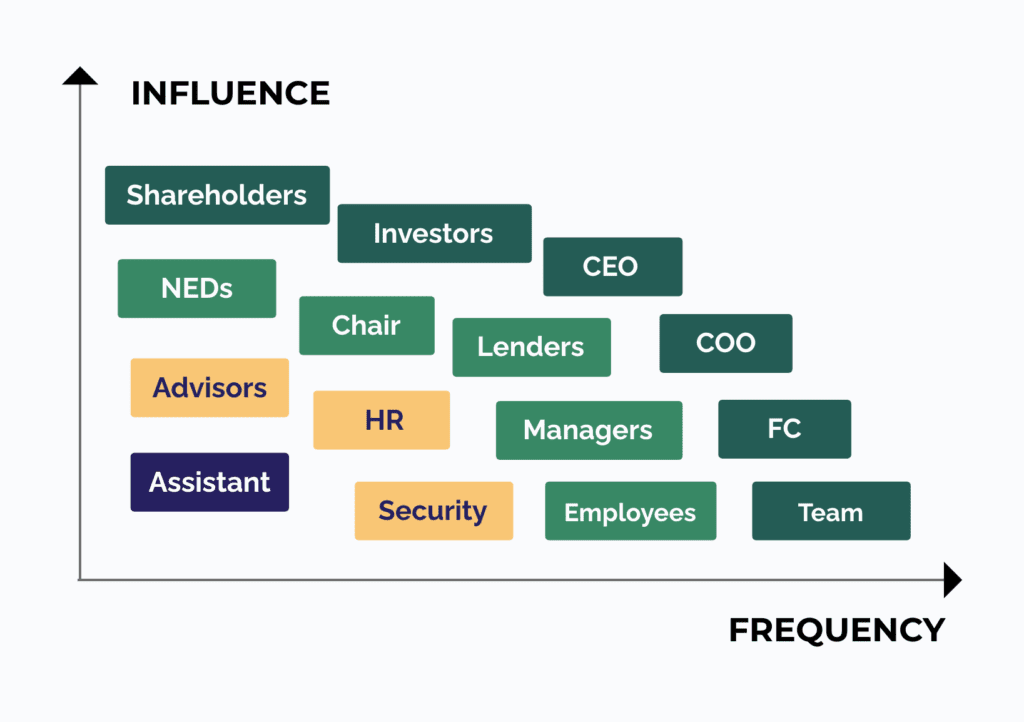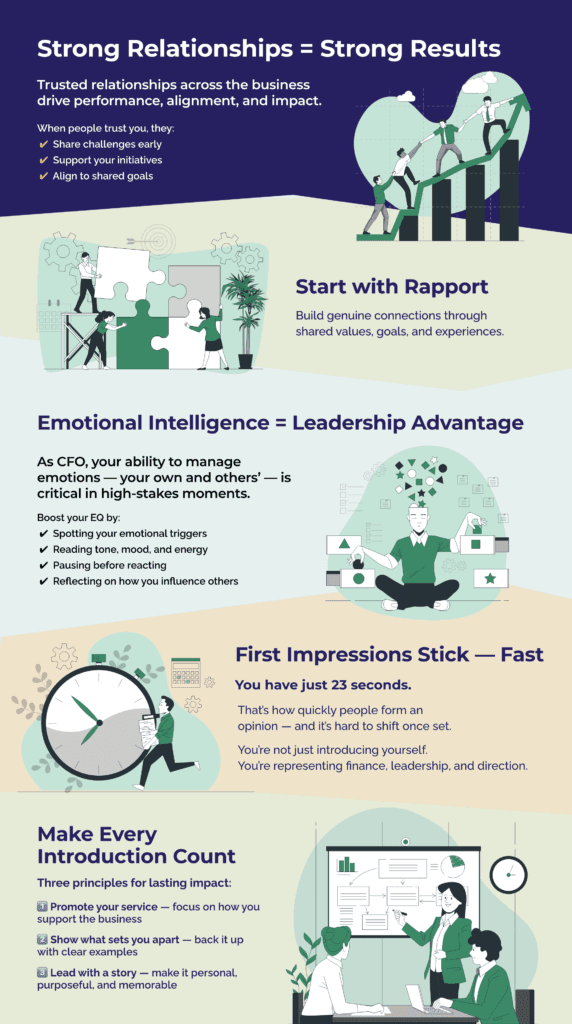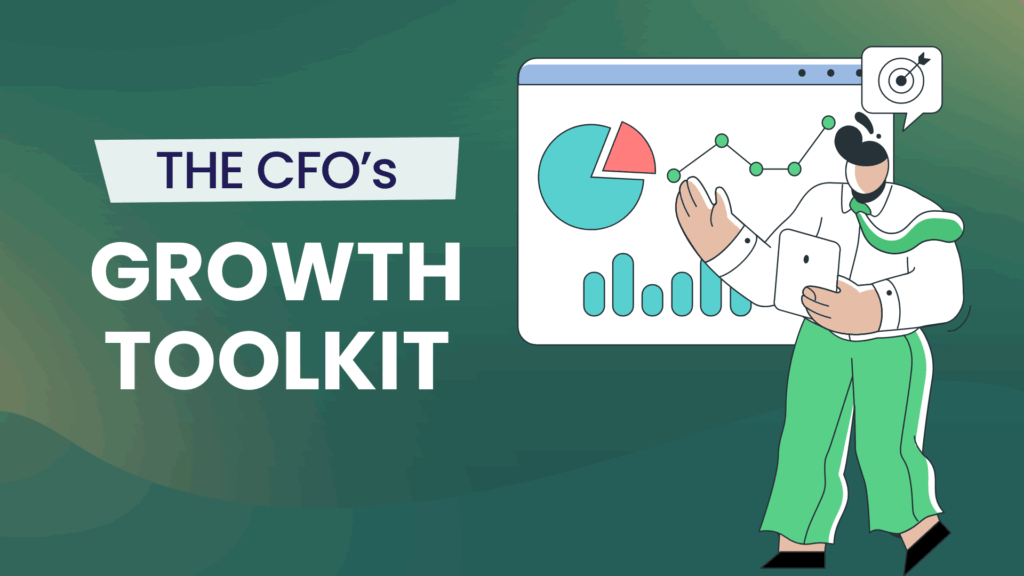How To Have More Influence As A CFO

💥 CEOs rank “strong CFO relationships” as one of the top 3 factors driving executive team success.
For CFOs, numbers alone won’t get you the influence you need.
To lead effectively — and drive real business outcomes — you must build strong, trusted relationships across the organisation.
That means more than just “being liked.”
It means earning confidence, aligning stakeholders, and becoming a go-to strategic partner for every part of the business.
From the boardroom to business units, from external advisors to operational teams — the quality of your relationships shapes how well you can communicate strategy, drive change, and get things done.
Here’s a look at the key relationships every CFO must manage — and how they influence your success.

Developing closer relationships — within finance and across the wider business — leads to a more productive, collaborative, and harmonious environment.
When people trust you, they’re more likely to share challenges early, align to shared goals, and support your initiatives. Strong relationships don’t just improve daily interactions — they directly impact your ability to deliver results and demonstrate the value of finance to the business.
Start by building rapport.
This means finding shared ground — through common values, experiences, or goals — and using that to create deeper, more authentic connections.
The strongest relationships are built on consistency over time. Nurturing these connections helps you build a powerful network that can support your current role and your future career.
Emotional intelligence is key.
As a CFO, you’ll face high-pressure situations, difficult conversations, and emotionally charged decisions. Your ability to manage your own emotions — and read the emotions of others — can make or break those moments.
You can strengthen your emotional intelligence by:
- Becoming more aware of your own emotional triggers
- Observing and responding to other people’s tone, mood, and signals
- Taking a pause before reacting — especially under stress
- Reflecting regularly on how you show up and how you influence others
The better you manage emotional dynamics, the more effectively you’ll lead — and the stronger your relationships will become across the business.
First Impressions Stick
As CFO, you’re constantly meeting new people — investors, board members, regulators, suppliers, recruiters. Every interaction shapes how you’re seen.
And first impressions form fast — within just 23 seconds.

Why It Matters
Once someone forms an opinion, it can take months to shift — and that perception may spread. That’s why how you introduce yourself really counts.
You don’t just represent finance. You represent credibility, leadership, and direction.
Make Every Introduction Count
Use these 3 principles to create impact from the start:
- Promote your service, not yourself
Show how you add value to the business — not just your title. - Highlight what makes you different
Share clear, specific examples of your strengths. - Lead with a story
Tell a short, personal story that reflects your purpose.
Your first interaction — whether planned or unexpected — shapes how people perceive you. Whether it’s a formal intro, a group meeting, or a chance encounter, you need a clear, confident elevator pitch that communicates who you are and the value you bring.
Great CFOs don’t just show up — they make an impression. If you want to strengthen your communication and lead with greater influence, join the Future CFO Program Preview Event to see how this program helps finance leaders shift from reporting to real impact.
📅 Spots are limited — register here.





Responses